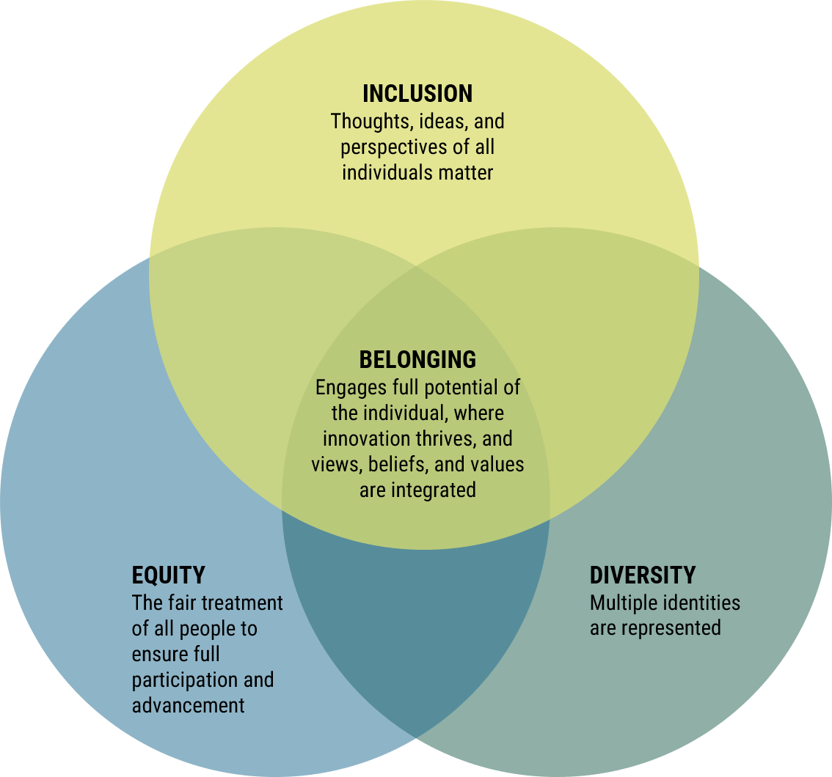DIVERSITY refers to the psychological, physical, and social differences that occur among any and all individuals, including but not limited to race, ethnicity, nationality, religion, socioeconomic status, education, marital status, language, age, gender, sexual orientation, mental or physical ability, and learning styles.
(Source: Equity in the Center: Awake to Woke to Work)
EQUITY is the fair treatment of all people so that everyone has access to the opportunities, structures, systems, and resources needed to enjoy full, healthy lives. Ensuring equity requires the elimination of personal, interpersonal, institutional, and structural barriers that prevent the full participation and advancement of groups of people who have been historically underserved and underrepresented.
(Sources: National Council of Nonprofits; Equity in the Center: Awake to Woke to Work; D5 Coalition: State of the Work).

